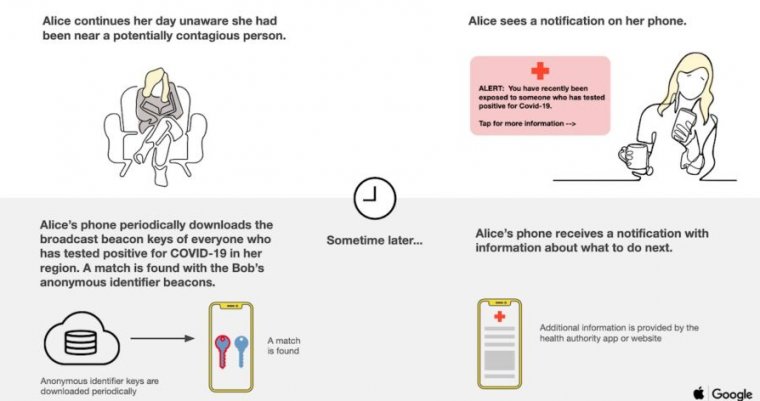Source: Ars Technica

Enlarge (credit: Google)
In a bold and ambitious collaboration, Apple and Google are developing a smartphone platform that tries to track the spread of the novel coronavirus at scale and at the same time preserve the privacy of iOS and Android users who opt in to it.
The cross-platform system will use the proximity capabilities built into Bluetooth Low Energy transmissions to track the physical contacts of participating phone users. If a user later tests positive for COVID-19, the disease caused by the coronavirus, she can choose to enter the result into a health department-approved app. The app will then contact all other participating phone users who have recently come within six or so feet of her.
The system, which Google and Apple described here and here respectively, applies a technological approach to what’s known as contact tracing, or the practice of figuring out everyone an infected individual has recently been in contact with. A recently published study by a group of Oxford researchers suggested that the novel coronavirus is too infectious for contact tracing to work well using traditional methods. The researchers proposed using smartphones, since they’re nearly ubiquitous, don’t rely on faulty memories of people who have been infected, and can track a nearly unlimited number of contacts of other participating users.

